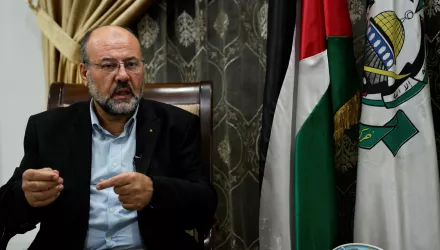The Group of Eight communique issued this month constitutes a definitive turnaround in aid fatigue.
It committed the leaders of those eight industrialized nations to an additional $50 billion (5.5 trillion yen) to achieve Millennium Development Goals (MDG) by 2015. These are global targets set by the United Nations for reducing global poverty in its many dimensions—from schooling to gender equity, hunger, clean water, incomes and the environment.
The G-8 leaders also confirmed a breakthrough on the cancellation of debt owed to multilateral banks that their respective finance ministers agreed to last month.
But the communique falls short in several other areas, including new mechanisms to mobilize resources such as charges on air tickets and the bulk purchase of medicines to stimulate research on new treatments for diseases such as malaria. These measures would break new ground in financing development.
Moreover, no concrete commitments were made on trade and reducing agricultural subsidies, nor on expanding access to medicines that are desperately needed by the world's poor.
These measures involve fundamental changes that go beyond aid, but there is no question that such systemic changes are essential to achieving a more equitable world in which poor countries can share in the benefits of globalization.
The measures outlined would help lift people from extreme poverty. They would also make their lives, and the world, more secure.
A hallmark of the 20th century was the effort undertaken by many countries to create arsenals of weapons to secure national borders to defend their citizens from foreign military threats.
In this new century, with threats that know no borders, security has taken on an entirely new meaning. Global epidemics travel the world and threaten the health of people everywhere. Financial volatility threatens jobs. Global criminal syndicates threaten law and order. Global terrorism threatens personal safety.
Famines, ethnic conflicts, social disintegration, terrorism, human trafficking, pollution and drug trafficking are no longer events confined within national borders. Their consequences travel the globe.
These new threats require a new approach to security. Ultimately, the goal of security has to be human security—to enable people to live without fear of threats to their survival, freedom and human rights.
For many people, especially in the developing world, life is chronically insecure as they lack not only food and job security, but also health and environmental and physical security. These miseries are part and parcel of their daily lives.
The recent suicide bombings in London that marred the G-8 summit in Gleneagles, Scotland, brought home the fact that human lives are vulnerable even in the wealthiest neighborhoods of the world's most powerful countries.
Many of today's threats to human security have their origins buried deep in failed development and growing socio-economic deprivations and disparities.
Nearly 60 countries experienced violent conflict during the 1990s. They were overwhelmingly in the poorest regions of the world.
Conflict causes poverty. It destroys infrastructure, undermines economies and destabilizes governments as well as inflicting human suffering.
But recent academic research also shows that poor countries are more vulnerable to violent conflict.
Why? Because failed development translates into weak administrative capacity to deliver on state responsibilities to the people. That results in inequalities and exclusion of ethnic and other minority groups, along with the seizure of natural resource wealth by oppressive groups. This increases political tensions and weakens the capacity to resolve them through peaceful means.
Failed development weakens the legitimacy of states and increases prospects for the armed conflict and the proliferation of illicit activities, such as drug trafficking.
The 1990s were the best and worst of decades for developing countries. One category of countries, China and India, for example, went from strength to strength on many fronts. But another category of very poor countries made no progress and many areas suffered reversals; Tanzania and Malawi come to mind.
It is estimated that the per capita income of about 54 countries is lower now than a decade ago. Hunger rates grew in 21 countries. Mortality rates for children under age 5 increased in 14 countries. Primary school enrollment rates declined in 12 countries and life expectancy dropped in 34. These countries need a boost of external resources for schools, roads, development of new medicines for endemic diseases like malaria, and many other investments to achieve the MDGs.
Development is crucial for human security, not only for those in poor countries but also for people throughout the world. Globalization is the defining historic trend of the 21st century. Ordinary people in both rich and poor countries are vulnerable to terrorist attacks, job insecurity, crime and environmental destruction.
The search for security lies in equitable development and eradicating global poverty—not in arms and wars.
Sakiko Fukuda-Parr is a research fellow at Harvard University's Kennedy School of Government. Necla Tschirgi, a native of Turkey, is vice president of the International Peace Academy in New York.
Fukuda-Parr, Sakiko and Necla Tschirgi. “Equitable Development Key to World Security.” Asahi Shimbun, July 25, 2005



